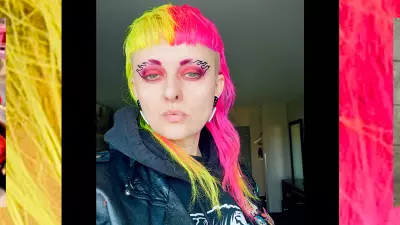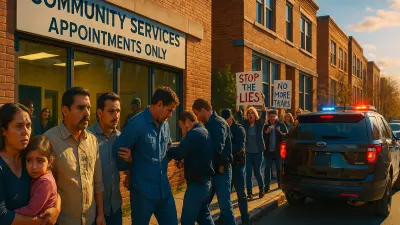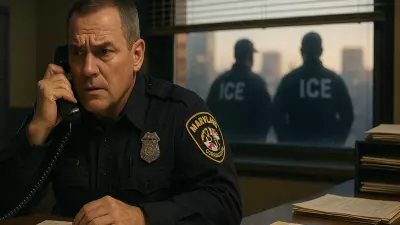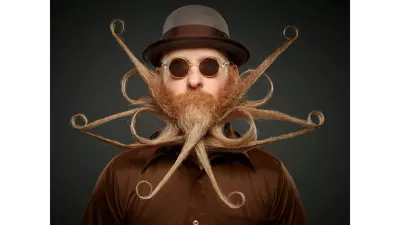She was born in a town outside of Moscow that she doesn’t like to talk about. “I don’t remember much — there was a lot of military there,” says Vereshchenko, then indicating her childhood is not her favorite topic of discussion.

She left Russia with her mother when she was 12 and settled in Detroit. Then as an adult, she settled in Pittsburgh, where she’s been creating ever since.
However, Vereshchenko, who goes by the handle Electric Cat, exhibits an artistic and personal style that radiates technicolor and dark humor juxtaposed against seemingly innocent imagery.
In all, she’s a fascinating and complex collection of personal history and artistic flair that cannot be ignored.
Learn more about her in Vereshchenko’s own words.
Postindustrial: What was your early childhood like before coming to America, and how did that era of your life influence your art?
Vereshchenko: My childhood was full of trauma, disappointments, neglect, bullying, and abuse. I have a very complicated relationship with Russia, and I don’t like to talk about it. When I think of that life, I just see cold and darkness.
This is where my inner darkness comes from. But it has shaped me into who I am now. I feel things very deeply and struggle with anxiety and depression. But I think it has made me into a compassionate human who also takes no shit.
I’ve been on the road with the Oddities and Curiosities Expo this year, and someone in Columbus, Ohio, said, “Your booth makes me feel so safe and so disturbed at the same time!” I almost cried; that was the best compliment my work has ever gotten, haha.
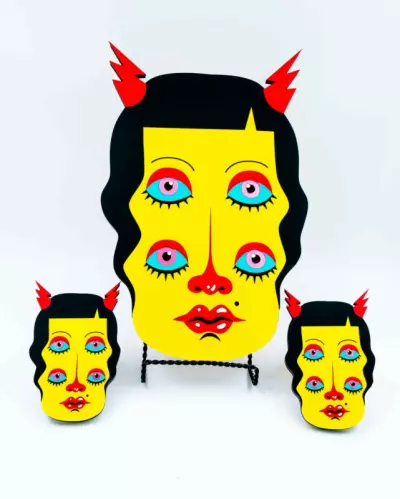
Postindustrial: Who are some of your influences for your art and personal look (which is fabulous)?
Vereshchenko: As a teenager, I grew up in Detroit, where I met a ton of amazing artists and musicians. I call Detroit post-apocalyptic New York because it’s just as cool as NYC, but everything was underground, so you had to know somebody who knew somebody to find it.
I also grew up hanging out with punks, hippies, goths, folk musicians — people of all ages, styles, and walks of life. Everyone was accepting of everyone, which was really cool.
We went to Bikini Kill, Sleater Kinney, random punk shows, slam poetry readings, folk concerts, and the anarchist house for random puppet shows explaining the spectrum of sexuality. I was obsessed with artists like Mark Ryden, whose work I have tattooed on me, and looking at the art in Juxtapoz and Hi-Fructose magazines.
Pop Surrealism is my favorite art style. It’s fun and colorful but usually dark. Sound familiar?
Postindustrial: You said that the drag community helped you overcome personal hardships. What is it about that community that gave you strength to overcome?
Vereshchenko: I struggled with alcoholism throughout my 20s. I wanted to forget the shy, quiet, angry girl that I was, and I thought that alcohol could help me do that.
But all it did was make me shyer, angrier, and more troubled. At 30, I decided it was time to change my life and stop feeling sorry for myself, so I immersed myself in AA and therapy. I did everything AA told me within 6 months, but after that, I realized that it’s just sad and depressing, and I couldn’t sit through another sad meeting anymore.
That’s when I started going to drag shows, while continuing with therapy, of course. People were so nice and complimentary, and encouraging of weirdness, that I finally felt at home.
I felt like I could get as weird as I wanted and not be judged for it, but celebrated. And that’s where my love affair with drag and club kid culture began. It all started at Blue Moon Bar (a legendary gay watering hole in Pittsburgh’s Lawrenceville neighborhood), where I became a drag photographer seemingly overnight.
This opened doors for me for random modeling gigs in NYC and even in Italian Vogue featuring Suzanne Bartsch, where I felt like an impostor standing side by side with all these famous drag queens and club kids, but I had the time of my life.
My goal for my business as it grows is to keep supporting the LGBTQIA+ community as much as I can. They gave me so much, and I want to give back.
To learn more about Masha Vereshchenko and her art, visit her shop at: Electric Cat Ninja. And be sure to follow her on Instagram.

